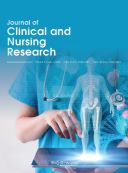Abstract
Objective: To investigate the mediating effect of organizational support on the relationship between resilience and anxiety-depression-stress by researching ICU nurses. Methods: A total of 675 ICU nurses in Shaanxi Province were surveyed using the organizational support scale, the resilience evaluation scale for medical staff, and the Depression-Anxiety-Stress Scale (DASS-21). Results: The resilience of ICU nurses had significant correlation with the level of organizational support (r = 0.448, P < 0.01), but was negatively correlated with depression (r = -0.238, P < 0.001), anxiety (r = -0.287, P < 0.01), and stress (r = -0.213, P < 0.01); the level of organizational support of ICU nurses was also negatively correlated with depression (r = -0.452, P < 0.01), anxiety (r = -0.410, P < 0.01), and stress (r = -0.490, P < 0.01). The sense of organizational support played a mediating role between the resilience of ICU nurses and their depression-anxiety-stress, the mediating effect accounted for 78% of the total effect. Conclusion: The perceived organizational support and resilience is an important external protective factor for the mental health and ability of ICU nurses. The management departments should continue to pay attention to the mental health of ICU nurses, take effective measures to improve the sense of organizational support and resilience of nurses, and ensure the good mental health of ICU nurses.
References
Pollock A, Campbell P, Cheyne J, et al., 2020, Interventions to Support the Resilience and Mental Health of Frontline Health and Social Care Professionals During and After a Disease Outbreak, Epidemic or Pandemic: A Mixed Methods Systematic Review. Cochrane Database of Systematic Reviews, 11(11): CD013779. https://doi.org/10.1002/14651858.CD013779
Huerta-González S, Selva-Medrano D, López-Espuela F, et al., 2021, The Psychological Impact of COVID-19 on Front Line Nurses: A Synthesis of Qualitative Evidence. International Journal of Environmental Research and Public Health, 18(24): 12975. https://doi.org/10.3390/ijerph182412975
Ying LY, Ramoo V, Ling LW, et al., 2020, Nursing Practice Environment, Resilience, and Intention to Leave Among Critical Care Nurses. Nursing in Critical Care, 26(6): 432–440. https://doi.org/10.1111/nicc.12551
Labrague LJ, Santos J, 2021, Prevalence and Predictors of Coronaphobia Among Frontline Hospital and Public Health Nurses. Public Health Nursing, 38(2): 382–389. https://doi.org/10.1111/phn.12841
Feng Y, Wu Q, Hu S, et al., 2002, Effects of Coping Style and Organizational Support on Resistance of Emergency Nurses Exposed to Workplace Violence. Journal of Nursing, 37(22): 5–8.
Turale S, Nantsupawat A, 2021, Clinician Mental Health, Nursing Shortages and the COVID-19 Pandemic: Crises Within Crises. International Nursing Review, 68(1): 12–14. https://doi.org/10.1111/inr.12674
Roberts J, Humbert B, Macmillan R, et al., 2022, The Resilience and Mental Health Experiences of Emerging Adults During the COVID-19 Pandemic: Creating Safeguards for the Future. SAGE Open, 12(1): 262–266. https://doi.org/10.1177/21582440221082148
Richardson GE, 2002, The Metatheory of Resilience and Resiliency. Journal of Clinical Psychology, 58(3): 307–321. https://doi.org/10.1002/jclp.10020
Eisenberger, R, Armeli, S, Rexwinkel, B, et al., 2001, Reciprocation of Perceived Organizational Support. Journal of Applied Psychology, 86(1): 42–51. https://doi.org/10.1037/0021-9010.86.1.42
Wenyi, Wu D, Lv X, et al., 2012, Reliability and Validity Evaluation of Depression-Anxiety-Stress Scale Simplified Version. Chinese Journal of Public Health, 28(11): 1436–1438.
Zhu H, Wan J, Shi K, et al., 2016, Study on Resistance Structure of Medical Staff and Preparation of Assessment Scale. Statistics and Information Forum, 31(2): 107–112.
Shen J, Benson J, 2014, When CSR Is a Social Norm: How Socially Responsible Human Resource Management Affects Employee Work Behavior. Journal of Management, 42: 1723–1746. https://doi.org/10.1177/0149206314522300
Han J, Wang J, Dong J, et al., 2021, Study on the Level of Resistance and its Influencing Factors in Nurses During the Epidemic. Journal of Nursing Administration, 21(01): 21–25.
Pan A, Wu Y, Chen J, 2022, A Qualitative Study on of Psychological Stress Among Frontline Nurses Fighting COVID-19. Archives of Medical Science, 18(5): 1407–1412. https://doi.org/10.5114/aoms/151141
Sun X, Dang Z, Hua X, et al., 2022, Study on Mental Health Status and Related Factors of Nurses in Normal Epidemic Prevention and Control Emergency Team. Occupation and Health, 38(24): 3370–3375.
Wang H, 2022, Study on the Status Quo and Influencing Factors of ICU Nurses’ Resistance, dissertation, Shihezi University.
Gu T, Wang R, Gong L, et al., 2022, The Mediating Effect of Perceived Organizational Support on Character Strength and Career Well-being of Nurses. Chinese Journal of Nursing Management, 22 (12): 1872–1876. https://10.3969/j.issn.1672-1756.2022.12.022
Zhuang X, Ni X, Wu L, et al., 2023, The Relationship Between Job Stress, Job Satisfaction and Perceived Organizational Support in ICU Nurses. Qilu Nursing Journal, 29(2): 34–36.
